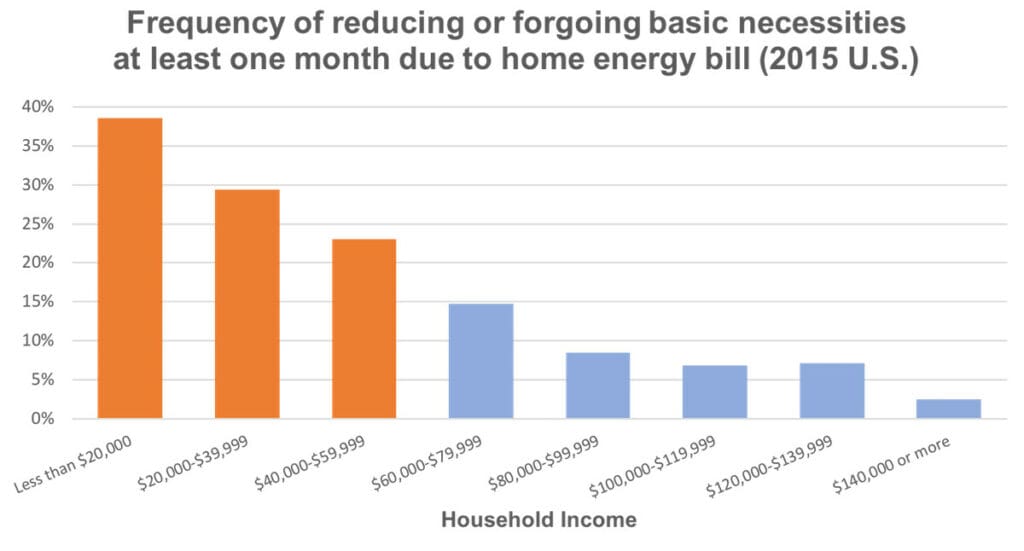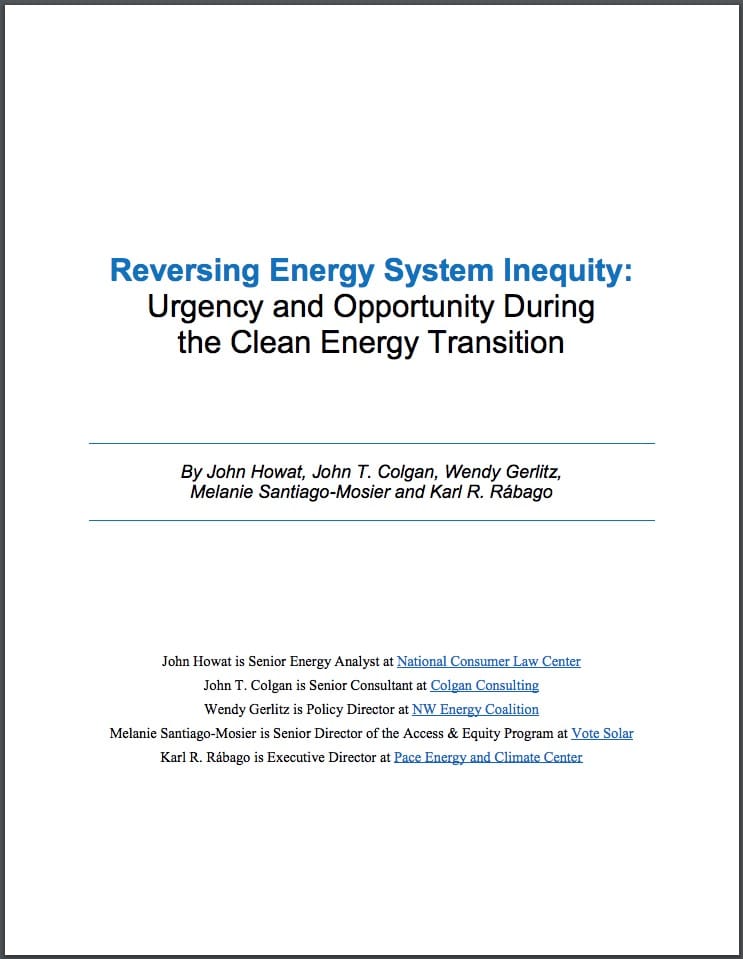Inequities in the energy system: new white paper explores issues and opportunities
“Families in America with the least means pay disproportionately more for their electricity, sometimes lacking basic access to service altogether.”
That’s the finding and the starting point for a new white paper that goes on to explain how, as we transition to a cleaner electric system, we can address inequities that at present force some people to choose between paying their utility bills and buying medicine and food. The question is whether we’ll take the opportunity to mitigate these inequities or exacerbate them as we integrate new wind, solar, energy efficiency, and grid management technologies into our electric system.
“Reversing Energy System Inequity: Urgency and Opportunity During the Clean Energy Transition” is the result of a collaboration among experts at the NW Energy Coalition, the National Consumer Law Center, Colgan Consulting, the Access & Equity Program at Vote Solar, and the Pace Energy and Climate Center. The authors identify three fundamental innovations that can set us on the road to a more equitable energy system in which customers don’t have to make intolerable trade-offs. The suggested reforms are:
- Improved Data Collection: Enhanced collection and distribution of comprehensive residential customer data, broken out for low- and moderate-income and vulnerable ratepayers can enable utilities, regulators, policymakers improve the reach and efficiency of assistance programs and educational efforts.
- Procedural Reforms: An inclusive regulatory process that gives traditionally disadvantaged communities an effective voice and that formally links identification of equity impacts with consideration and adoption of measures to address them can yield solutions.
- Customer Education: Greater awareness and familiarity with the full range of available programs, services, and best practice protections can empower and assist more low- and moderate income customers than are being assisted today.
These recommendations are consistent with recent efforts undertaken by the NW Energy Coalition to achieve greater equity in utility rate cases and in regulatory proceedings that determine how utilities will acquire and distribute energy and the efforts they will make to engage customers. Currently, the NW Energy Coalition is championing a bill in Oregon (HB 2242) that will increase the ability of underrepresented communities to participate in regulatory proceedings. The bill will:
- Empower the Oregon Public Utility Commission to authorize utilities to offer rate designs that keep service affordable for low-income or other underserved customers, such as the elderly and those with medical conditions.
- Grant access to funding for organizations that represent low-income and environmental justice communities so they can engage effectively in the regulatory process.
- Create the position of Low-Income and Environmental Justice Advocate to represent the interest of low-income communities and communities that suffer disproportionately from pollution and other ill effects of the energy system.
The NW Energy Coalition is playing a leading role in the effort to enact the Clean Electricity bill (SB 5116), which will transition Washington to a clean electric system by the year 2045. A key element of that policy is increased assistance for low-income customers and investments to help communities whose economies and residents may face special challenges as a result of the transition away from fossil fuels.
Please read and share this important new white paper.



